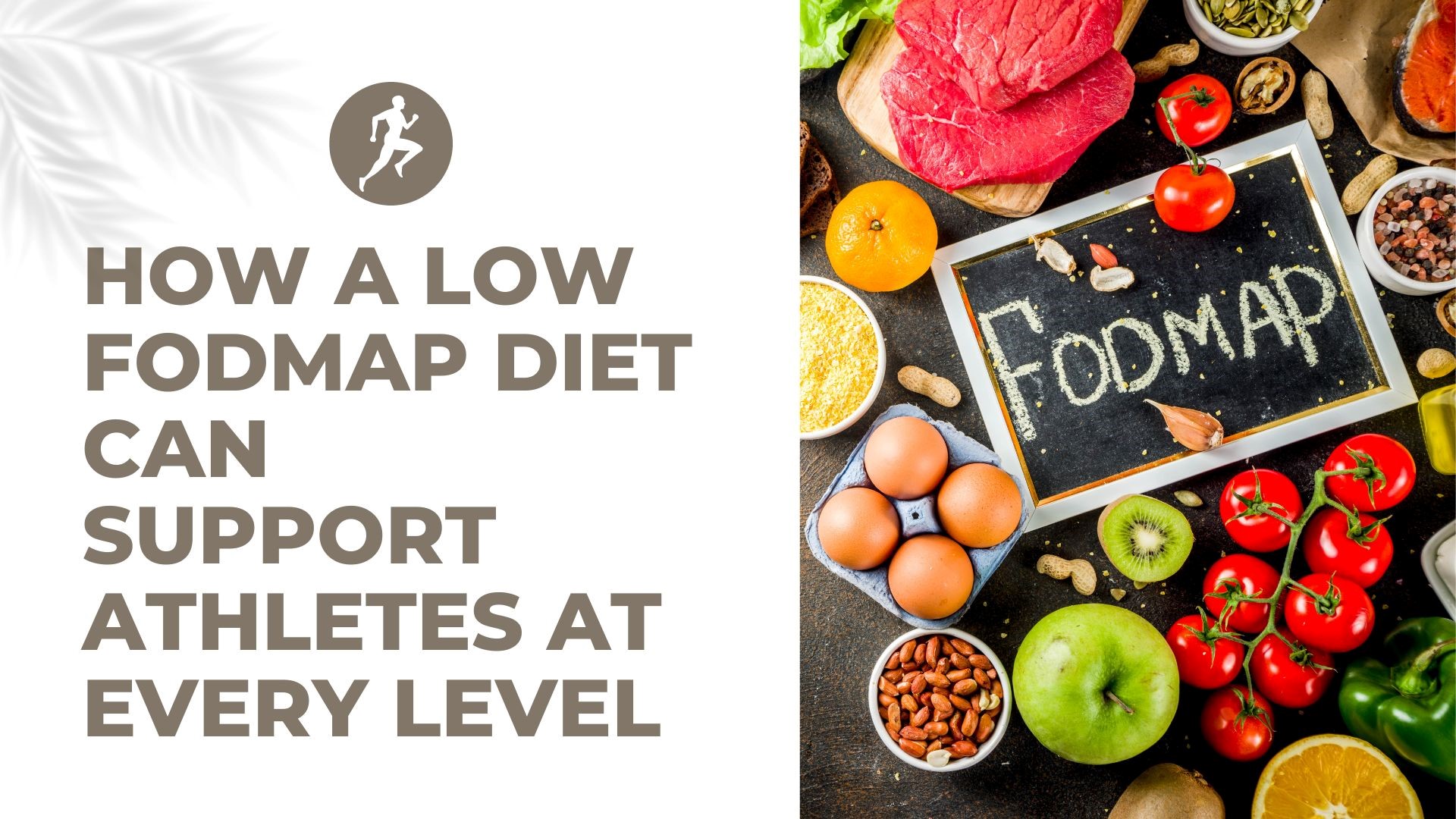You must have heard of Irritable Bowel Syndrome (IBS). Still, if you have not, IBS is a common gastrointestinal condition involving symptoms like abdominal pain, gut-brain interaction, and changes in bowel movements.
Studies reveal that most athletes who undergo prolonged physical exercise suffer from IBS, and their symptoms are poorly managed. IBS in athletes can hurt their performance.
However, as serious as the case of IBS can be, the good news is that restrictive diets such as low FODMAP are proven effective in managing this GI disorder in athletes.
But how does a simple diet assist athletes with IBS in their performance? Through this article, we will delve into the effectiveness of low FODMAP in helping athletes with IBS in every aspect of their activities.
What is Low FODMAP?
Low FODMAP is a three-phase temporary elimination diet plan that reduces the consumption of certain fermentable carbohydrates.
Many individuals and athletes include Low FODMAP meal delivery, proper timing, planning calendars or schedules, and strict strategies to adhere to this elimination diet strictly.
By doing these, they can return to health faster and avoid temptations to breach their diet plan, which can ultimately ruin the purpose of the diet and result in starting all over again.
What Causes Gastrointestinal Distress in Athletes?
Athletes suffer from several gut-related issues. However, experts have related these issues to endurance exercises’ nutritional, psychological, environmental, and mechanical components.
Irritable Bowel Syndrome occurs in endurance athletes as a result of their intake of carbohydrates which provide them with the energy they require to perform effectively.
In fact, many foods continuously marketed toward athletes are most likely to have a high FODMAP profile. Some of which include products such as wheat, barley, rye, etc.
However, the intake of these FODMAP-rich foods affects their health and harms their performance. Hence, the use of FODMAP reduction.
What is FODMAP?
‘FODMAP’ is an acronym that represents Fermentable Oligosaccharides, Disaccharides, Monosaccharides, and Polyols. This group of carbohydrates collectively makes up the carbohydrates called fermentable short-chain carbohydrates.
These carbohydrates have been proven indigestible/difficult to digest in many individuals, resulting in several gastrointestinal conditions.
How Does Irritable Bowel Syndrome Affect Athletes?
IBS is often associated with symptoms such as bloating, gas, etc., which can interfere with their performance.
These symptoms result in fatigue and discomfort, which can hurt the overall performance of athletes. But these symptoms can be adequately managed with diets like the low FODMAP diet and a proper lifestyle.
How Can Low FODMAP Assist Athletes in Managing IBS?
-
Identify The Triggers:
The low FODMAP diet uses its three-phase strategy to determine the group of carbohydrates under FODMAP that trigger symptoms and which are tolerable.
In the first phase of this treatment, high FODMAP foods are eliminated from the athlete’s meals until the symptoms subside.
After that, the second phase. Here, FODMAP-rich food is gradually reintroduced into their diet to determine the type and quantity of tolerable FODMAP.
-
Improve Symptoms:
Strict adherence to the Low FODMAP eliminates gastrointestinal symptoms such as bloating, gas, and abdominal pain, which can interfere with athletes’ performance.
Thereby enhancing their comfort and focus, which improves their overall activity.
-
Improves Nutrient Absorption:
Irritable Bowel Syndrome can affect the absorption of nutrients and digestion, resulting in a lack of energy in athletes.
By reducing FODMAP consumption, athletes can be sure to absorb the nutrients required to stay proactive, especially endurance athletes who require more amounts of fuel to remain active.
-
Enhances Gut Health:
Low FODMAP is proven effective in restoring the balance of gut health, which is essential in digestion and its optimization.
Reducing fermentable carbohydrates in the meals of athletes through the low FODMAP approach will result in the tremendous growth of healthy gut bacteria that take part in digestion.
In addition, curbing FODMAP-rich foods will eliminate the presence of harmful bacteria.
-
Specific diets:
Unlike most diets, a restrictive diet like low FODMAP doesn’t give a generalized diet plan. Instead, every athlete is provided with a diet specific to their needs.
Low FODMAP presents an individual approach to assisting athletes with IBS to get better. It ensures that each athlete has a diet plan with nutrients that suit their activity and performance.
-
Persistent management:
Low FODMAP is not a permanent diet plan, nor are there downsides. Therefore once trigger food items have been identified, your dietician will reintroduce some FODMAP-rich foods into your meal.
This method gives athletes various meal options, like low FODMAP, while on a restrictive diet.
Can I Exercise on Low FODMAP?
You can perform exercises such as yoga, power walking, strength training, and more, but stick to moderate sports.
While exercise has been proven effective in managing IBS, it is a powerful addition to your low FODMAP diet and can help with IBS symptoms. High-intensity sports can worsen IBS.
Are There Alternatives to the Low FODMAP Diet?
Of course! There are alternative diets. However, for the right guidance and diet plan specific to your gastrointestinal condition, endeavor to speak with your dietician or nutritionist before embarking on any restrictive diet plan.
Manage IBS With a Low FODMAP Diet
The low FODMAP diet has been proven highly effective in managing IBS symptoms in athletes.
In addition, by reducing fermentable carbohydrates in their meals, this elimination diet improves gut health, enhances performance, and facilitates the well-being of athletes.
However, before embarking on this diet, speak with a professional nutritionist or dietician; they can offer you the right help and assist you on your journey. They may also have alternatives to try before embarking on a restrictive diet.








